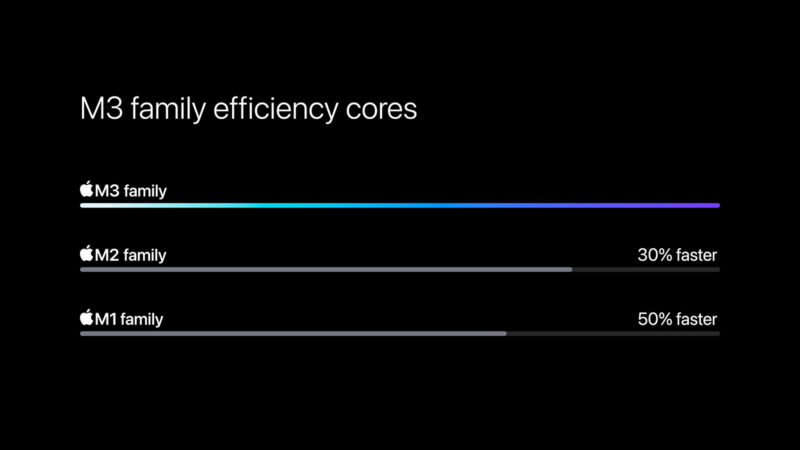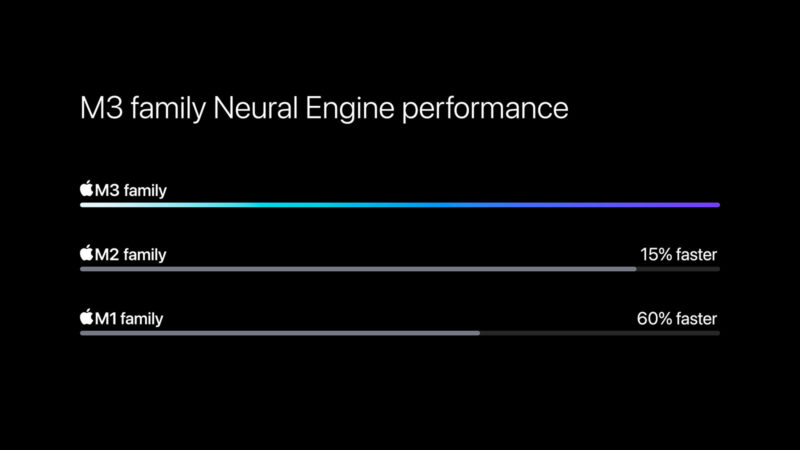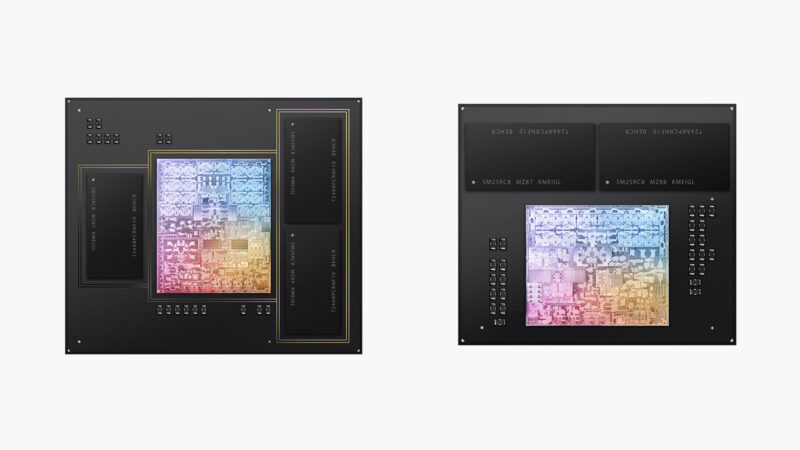
In a stunning technological leap, Apple has unveiled its latest M3 series of processors, outperforming its previous M1, M1 Pro, and M1 Max chips by a significant margin. The release of the Apple M3, M3 Pro, and M3 Max Chipsets, showcases Apple’s remarkable strides in just a few short years.


The M3 series is built on a cutting-edge 3-nanometer architecture, integrating lessons learned from previous M-series processors. These chips feature a CPU with performance and efficiency cores, a GPU, and a 16-core neural engine. Notably, the CPU cores boast improved branch prediction for enhanced efficiency, while the performance cores have a wider decode and execution engine. The efficiency cores feature a deeper execution engine, collectively boosting overall performance and efficiency.


The neural engine, responsible for on-device machine learning, is a remarkable 60% faster than its predecessors. Additionally, there’s an improved media engine supporting hardware acceleration for H.264 and HEVC, ProRes, and ProRes RAW support, and an AV1 decode engine for efficient video handling from platforms like YouTube and Netflix.


Despite these performance upgrades, Apple has maintained a focus on power efficiency. The M3 CPU and GPU deliver the same performance as the M1 but with significantly reduced power consumption. In fact, compared to a 12-core laptop PC chip, the M3 CPU provides equivalent performance with only a quarter of the power, while the GPU achieves the same with just a fifth of the power.
The base M3 chip offers up to 65% faster performance than the original M1, making it a solid choice for most users. Meanwhile, the M3 Pro and M3 Max cater to power users, with more CPU and GPU cores, plus additional unified memory for handling heavy, complex workloads.
The release of the M3-powered MacBook Pro laptops, starting November 7th, further showcases the capabilities of these chips. The 14-inch M3 laptops start at $1,599, while the 16-inch M3 Max unit, equipped with a 16-core CPU and a massive 40-core GPU, is priced at $3,999.
For those seeking the pinnacle of performance, a fully loaded M3 Max MacBook Pro with 8TB of storage will set you back $7,199. While this may seem steep, it’s a powerhouse system that will undoubtedly outperform the competition for users with demanding workloads.


In conclusion, Apple’s M3 series of processors represents a remarkable leap in processing power and efficiency, offering users a range of options to suit their needs, from everyday computing to heavy-duty workloads. These chips are a testament to Apple’s commitment to innovation and performance in the world of computing.




















